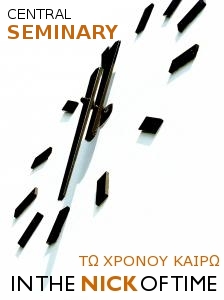
Read Part 1, Part 2, Part 3, and Part 4.
Personal Piety
Historical periodization is a subjective business. People do not just go to sleep in one period and wake up in another. Usually they do not even realize that a significant change has occurred except in retrospect. For historians to impose periods upon history is necessarily subjective and somewhat arbitrary.
Nevertheless, since history is linear and progressive, it is possible to trace development. The movement from one period to the next does result in change. Examining the record, a historian can detect these changes and can discern when some significant transition has taken place.
In the history of American Fundamentalism, the years from about 1870 to about 1920 seem to comprise a distinct period. During this period, Fundamentalism was not yet a discernable, self-aware movement. All the same, changes were taking place across American evangelicalism, and these changes strongly shaped Fundamentalism when it emerged in 1920.
In previous essays, I have posited that this proto-fundamentalist period was characterized by eschatological fascination, evangelistic fervor, and an emphasis upon worldwide missions. Secondary characteristics included a minimizing of denominationalism, the growth of the faith missions movement, and the development of the Bible institute as an important venue for proto-fundamentalist education. These influences, however, are only part of the story.
Another major influence during this period was a resurgence of personal piety. This resurgence was necessary because American Christians—indeed, American society—had become preoccupied with personal comfort and affluence. This was the gilded age, and businessmen were riding the crest of the second industrial revolution to amass fortunes. These individuals may have been a small minority, but they captured the imagination of the country and established an ethos that governed much of American culture.



Discussion